Women in Pro Audio: Úna Monaghan Women in Pro Audio: Úna Monaghan...
In this latest installment of our Women in Pro Audio series, we have the pleasure of introducing Úna Monaghan. A multifaceted talent excelling as a musician, composer, live sound engineer, and lecturer in Sound and Music at Queen’s University Belfast.
Úna, originally from Belfast, moved back home in 2019, and talks about her work as a musician. “I perform solo with harp and electronics, with my trio Of Aran, and with the new music sextet Stone Drawn Circles. My compositional work spans a range from fixed media to solo, chamber, and orchestral pieces, often incorporating electronics. I also collaborate with others and write music for dance.”
As an engineer, she specializes in acoustic, experimental, and multichannel music. “I serve as the touring engineer for artists working in and across these genres. At Queen’s University, I currently teach Performance, Live Production Systems, and Irish Traditional Music.”
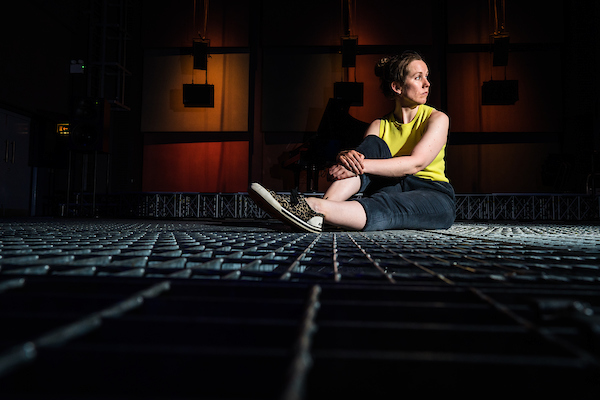
Photo credit: Elaine Hill
A Passion for Sound
Úna’s love for sound began at a young age through playing instruments. She recalls being “fascinated by what technology could do to a single sound. How it could capture it, expand it to fill a huge space, and how sound equipment could be used to transform that sound.” This interest grew, leading her to explore the potential of technology to create new sounds and music that went beyond the capabilities of acoustic instruments.
“I didn’t resolutely decide to become a live engineer as a sole career. Partly because I’m interested in so many different types of work across sound and music, but also because it always felt precarious, particularly for women,” she says. “I followed my interests at every moment, tried to be true to myself, and moved towards things that attracted me. Taking the next opportunity available, no matter how daunting! I am particularly attracted to live sound rather than studio recording. I enjoy the real-time connection with people, and the fact that there is a deadline by which you can no longer tweak anything!”
The Path to Pro Audio
Úna started in the industry by observing engineers and offering help with tasks like coiling cables, setting up equipment, and line checking. She believes that her skills as a musician and composer, combined with her technical expertise, helped her gain recognition from artists. “Communicating with them about the sound, the music, their instruments, and their hopes for the performance” was crucial. She also understood the critical impact of a monitor mix, especially for acoustic musicians, and strived to create respectful working relationships.
Her journey wasn’t without struggles. Úna “showed up for free for a long time” and dealt with “relatively low pay and mad hours for many years,” acknowledging this as a significant barrier for many, especially those with caring responsibilities. She credits two mentors, Chris Corrigan and Tim Matthew, for their crucial support, answering her questions for years, allowing her to shadow and work with them, and boosting her confidence.
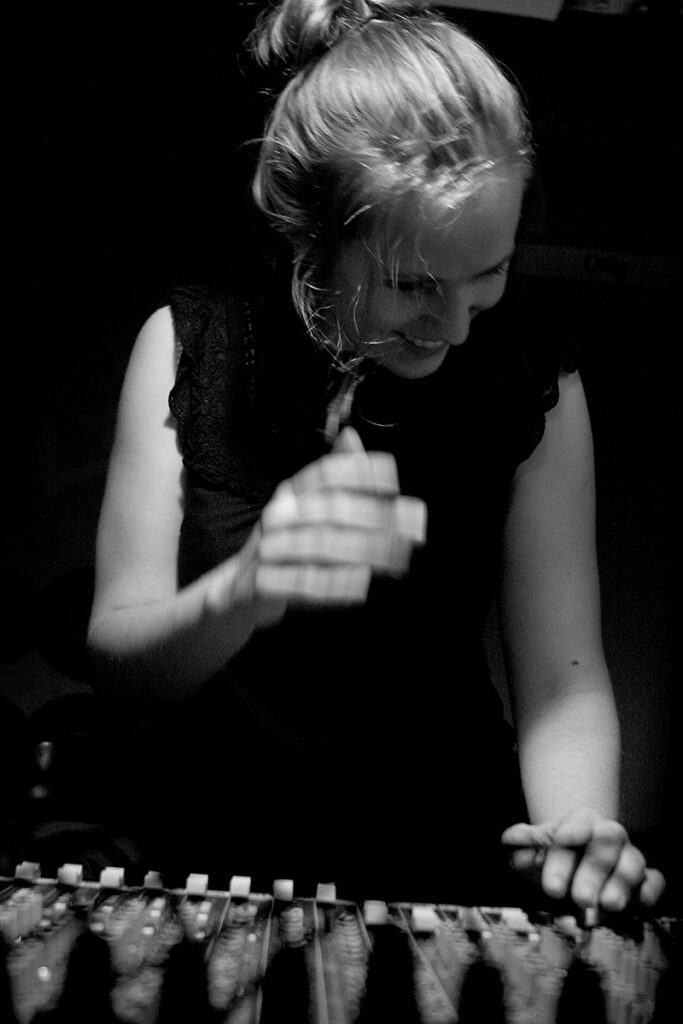
Photo Credit Stanislav Nikolov
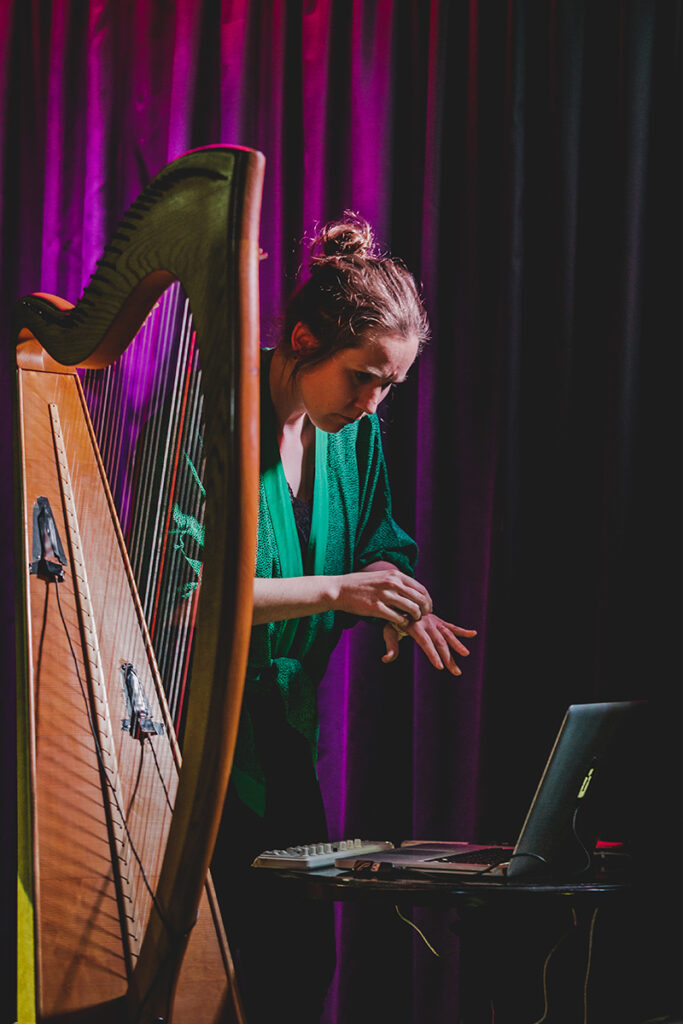
Unique Challenges for Women in Pro Audio
In discussions about women in male-dominated fields, such as pro audio, it’s crucial to shine a light on the specific hurdles they encounter. These experiences, often subtle or unacknowledged, are important to understanding the systemic issues that contribute to gender imbalance and to creating a truly equitable industry.
Úna reveals that many of the challenges women face in the industry are inherently unseen, explaining, “Mostly, I will never know! You don’t hear about the gigs you’re never considered for! That’s part of the problem.” She recounts frustrating instances where her role as the engineer was simply not acknowledged despite extensive prior communication. Imagine emailing a venue for weeks about tech specifications, having a conversation about the setup upon arrival, and then, upon asking, “Will we get started?”, being told by in-house staff, “No, let’s wait until the engineer gets here.” This happened to Úna, despite her name being on emails for weeks.
Beyond outright dismissal, Úna has been met with surprise, hearing remarks like “you’re actually good,” or having her carefully considered technical designs assumed to be due to a “lack of knowledge,” only for others to later realize the sound reasons behind her choices. She often finds herself “being tested on my gear knowledge,” enduring “unsolicited advice with lots of jargon” from other engineers eager to display their own expertise. Úna observes that her insightful questions, intended to gain a deeper understanding of a specific job, can be misinterpreted as “a lack of confidence,” making potential clients “nervous and have second thoughts about hiring me if I do not present with complete assurance.” For Úna, however, these conversations are “an important part of preparation!”
Exercising Authority
Disturbingly, Úna has experienced more sinister incidents. She vividly recalls an instance where, as the Front of House engineer, she instructed a male, older stagehand not to interfere with the stage box during soundcheck after he caused a loud bang. Later that night, her hoodie went missing and was “found… destroyed in the men’s toilets.”
She notes that while “doing the work is fine, a novelty to have an engineer who is a woman, even,” any “threat to ego, exercise of authority, or highlighting a problem is sometimes not tolerated so well by some crew members or musicians.” Úna has also felt “some scrutiny from the (female) partners of musicians or engineers when I am the only woman working in the group on a tour or festival.” Which she feels “is again indicative of a wider culture.” With stark honesty, she states, “The whole world is sexist, and sound engineering is no different.” This sexism can manifest in subtle, yet impactful, ways, creating “extra pressure, like having no leeway for error, and needing to prove yourself every time you show up to work, before being accepted.”
Such constant pressure can lead to “adaptive behavior like ensuring the first impression you give is of a certain character. And turning a blind eye to casual sexism and jokes.” Practical difficulties further compound these issues, such as “missing my regular artists’ tour and concerts when my son had just been born.” Or the immense challenge of “planning work as a freelancer while navigating the unknowns of pregnancy and having a family.” Úna also confirms incidents of “safety and harassment, particularly after gigs.”
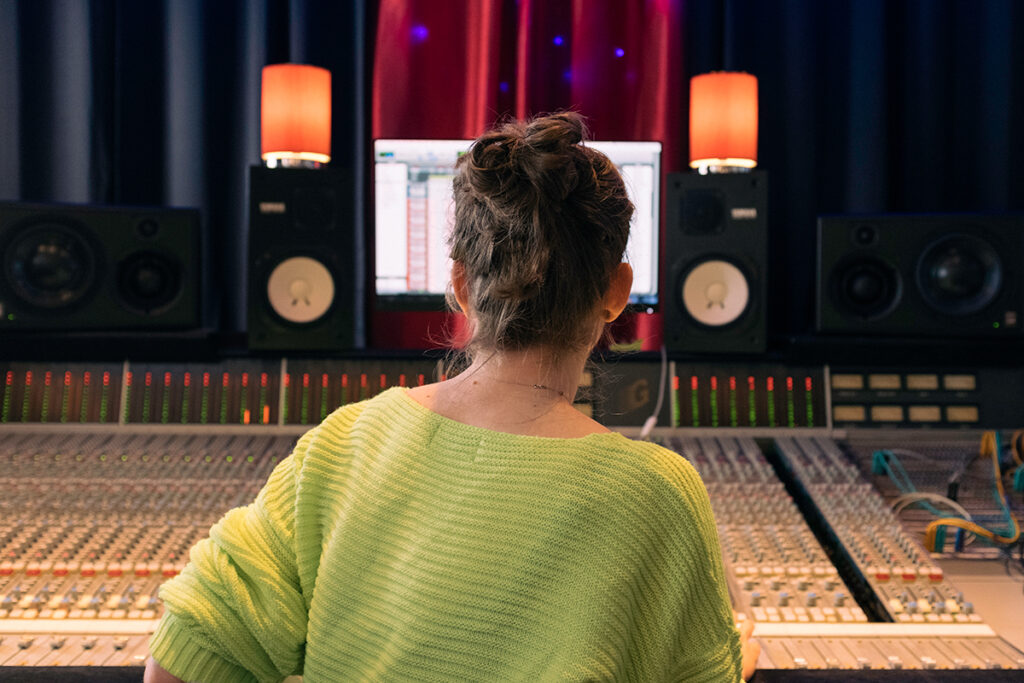
Photo Credit: Damian McCann
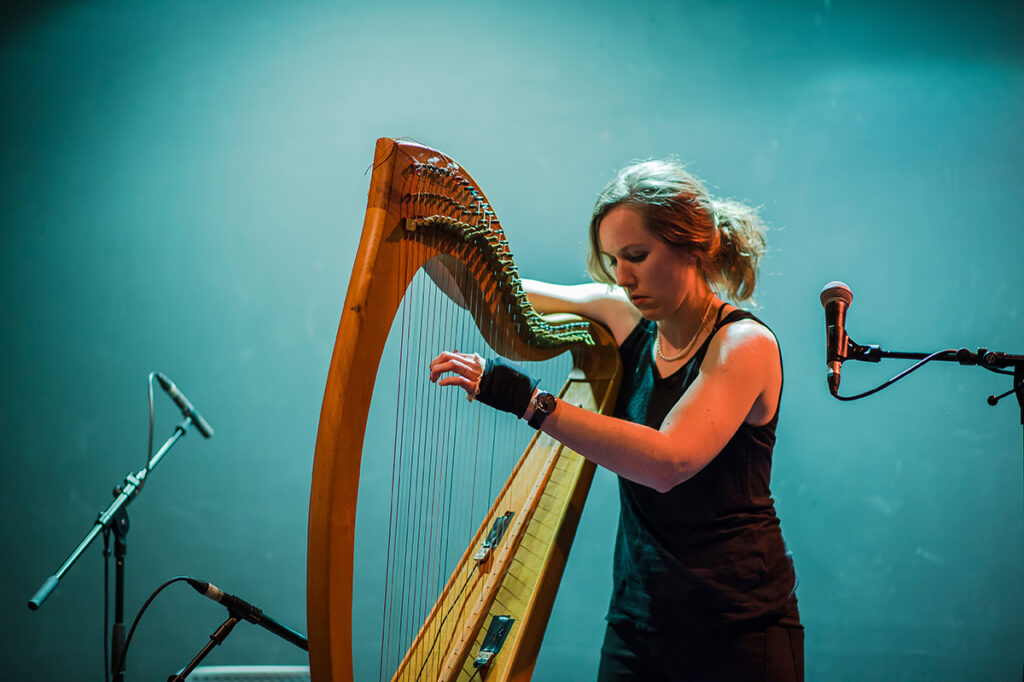
Overcoming Challenges
Úna’s resilience shines through her approach to confronting obstacles. She asserts that if “fear is the only reason I’m not doing something, I try to do it anyway.” She views challenging moments as a crucial juncture, reminding herself that “it is at these points I can choose to leave the game, or stay in it.” So far, she proudly declares, she has “stayed in it!” Despite admitting to “terrifying soundchecks where I have had to force one foot in front of the other walking to the venue.”
Finding Joy
Úna’s passion for the work remains unwavering. She finds immense satisfaction in “the buzz from a good mix and from everyone enjoying it together.” Her love extends to “the logic of the whole sound system and the many different parts working together. The physics of sound manipulation, and the magic of the feeling as you hear the adjustments you make.”
Fundamentally, she cherishes “the music itself, and being a part of realizing that music.” With growing experience, Úna has found comfort in realizing that “live sound is not usually life or death. There is a team, so there is support.” This team dynamic means “There are other people collaborating who will have the answers if you don’t.” This team can work together to achieve the best outcome. However, she candidly admits, “That was not how I felt at the beginning. And I think that feeling of isolation was in part due to the gender imbalance.”
Career Highlights
Úna finds immense joy in working with artists she regularly collaborates with. She proudly highlighted her work on Jennifer Walshe’s “TIME TIME TIME and PERSONHOOD.” She notes, “Jennifer is a pioneering composer. Her intelligence, heart, and the amount of research that goes into her work are immediately evident in her pieces. She often involves me early in the rehearsal process. That way, reinforcement considerations and the design of the sound system can develop in tandem with the lighting, projection, costumes, and the piece itself.”
Úna continues, “This means that we can use sound, and the potential for surround sound, as creatively as possible in the performances. She also likes to work with multiple performer locations throughout the space, which I love. I relish the question of where we place loudspeakers when the performers are spread throughout the space. And the balancing of technical, feedback, and monitoring considerations.”
She also feels “lucky and proud to work with some of the best Irish traditional musicians in the world. Iconic artists like Dónal Lunny, Andy Irvine, and Paddy Glackin. I have worked with Dónal on several of his bands, and it means a lot to have the trust of musicians I respect.”
Women in Pro Audio: Growth Strategies
For continued career growth, Úna champions learning from others and “Asking for advice.” She sees this as “a small act of rebellion against the perceived need for perfection, and isolated learning.” Úna emphasizes that “there is rarely only one answer in live sound. It’s important to ask for opinions and to be flexible, and to listen!”
She also actively seeks out training workshops on new equipment whenever she can. “I revisit textbooks if I need clarification on something practical. The microphone and loudspeaker manufacturers often have excellent literature, handbooks, and video tutorials,” and of course, she utilizes “online resources.”
Challenging the Status Quo
If Úna could change one thing about the industry, it would be “the precarity, and the need to perform complete confidence until they accept you.” Her advice to other women entering the industry is profoundly personal: “Build your confidence – whatever that means to you.” It is crucial, she explains, “to get to a point where you trust yourself, and your ears.” On a related note, she advises, “Be true to yourself,” and “Keep focused on the things that interest you.” For everyone in the industry, Úna stresses the importance of physical well-being: “Look after your body.” She describes the job as “A workout. The lifestyle can be grueling in terms of managing to eat vaguely healthily and getting any sleep while on tour.” She strongly recommends, “Start core exercise early – you need your body and you need to strengthen your lower back!”
Addressing men specifically, Úna poses a critical question: “If the visiting engineer is a woman, or there are women in your crew, are you truly treating her as an equal? Do you believe she knows what she’s doing? If not, why?” She encourages men to “make clear to her that you trust her ability and acknowledge her knowledge, before you tell her about yours.” While this advice applies to interactions between men as well, Úna tells her students that if musicians or colleagues make assumptions, they should “patiently show, rather than say, what you know, and eventually they will realize.” Ultimately, she hopes “we can all work towards making the scene less macho, and less about jostling for position,” especially since “Our roles and responsibilities often change from gig to gig anyway.”

Úna Monaghan at the mixer at the Sonic Arts Research Centre, Belfast
Photo credit: Elaine Hill
Unforgettable Moments
Úna shares several memorable anecdotes from her career. She vividly recalls a gig in a small rural village hall. A Canadian folk band’s vigorous stomping on a sprung wooden stage caused “the speaker stack to bounce steadily towards the edge.” Úna spent the entire gig “physically holding the speaker stack in place. It’s a basic requirement that the PA stay upright and doesn’t murder anyone!”
Another instance involved outdoor gigs proceeding “in the driving rain. Four people were manipulating the corners of the engineering tent to stop gushing rivers of rain from hitting the mixer while I was working.” She admits this was “pretty nerve-wracking, and probably someone should have called it off.”
A humorous experience occurred on tour in India when Úna was told soundcheck was at 7:30 AM for an evening gig. She assumed it was due to a tight festival schedule. Arriving “fairly wrecked for 7:30 AM, after hours of flights and travel,” Úna discovered “the venue was ours all day! They just wanted to do everything in a really laid-back way, with loads of chats, coffee, and food breaks. Hilarious and beautiful.”
She also remembers the surreal experience of mixing live performances during COVID. “When I wasn’t allowed to be in the auditorium with the performers. Everything was sent out to me to mix in a tent in the foyer with a video screen, which feels mad now.” Other common occurrences include “musicians going rogue into the audience in the middle of gigs, and trying to keep them amplified. Or musicians wandering off to pee with a wireless mic on.”
Why She Loves Working in Pro Audio
What Úna loves most about her profession is “Premiering new large-scale pieces with complex sound requirements. The applause at the end of the gig. The first time the work goes out to the world, it’s such a release! Using a new desk I haven’t met before. I enjoy engineering at experimental or contemporary music festivals. You never know what or where you will be asked to mic – rocking chairs, water tanks, beans, blenders, underground carparks. And, just when the music I’m mixing really moves me. I’m often found dancing or crying at the mixer! It’s brilliant.”
She also draws inspiration from engineers like Julie McLarnon, who runs Analogue Catalogue, a recording studio specializing in analog recording. And Katie Tavini, a UK-based mastering engineer. She admires “how they have built their careers and businesses.”
Future Aspirations
Looking to the future of live events, Úna recognizes that “Touring and live performance is expensive, and it is not available to everyone.” She notes that “it is getting harder and harder for smaller artists to tour.” Úna passionately “hopes that governments will adequately fund the arts. So we can keep making the magic of live performance available to audiences, but also to musicians and crews.”
She emphasizes, “It is such a joy to do this work. I would love to see more support for initiatives that reduce the environmental impact of touring. There are already some great initiatives underway, such as Better Live, and this work is very important. And of course, more initiatives to make music and sound engineering more accessible to underrepresented groups of people.”
Úna Monaghan can be found online at her website, on Instagram: @una_pix, Bluesky: @una-music.bsky.social, and Facebook.
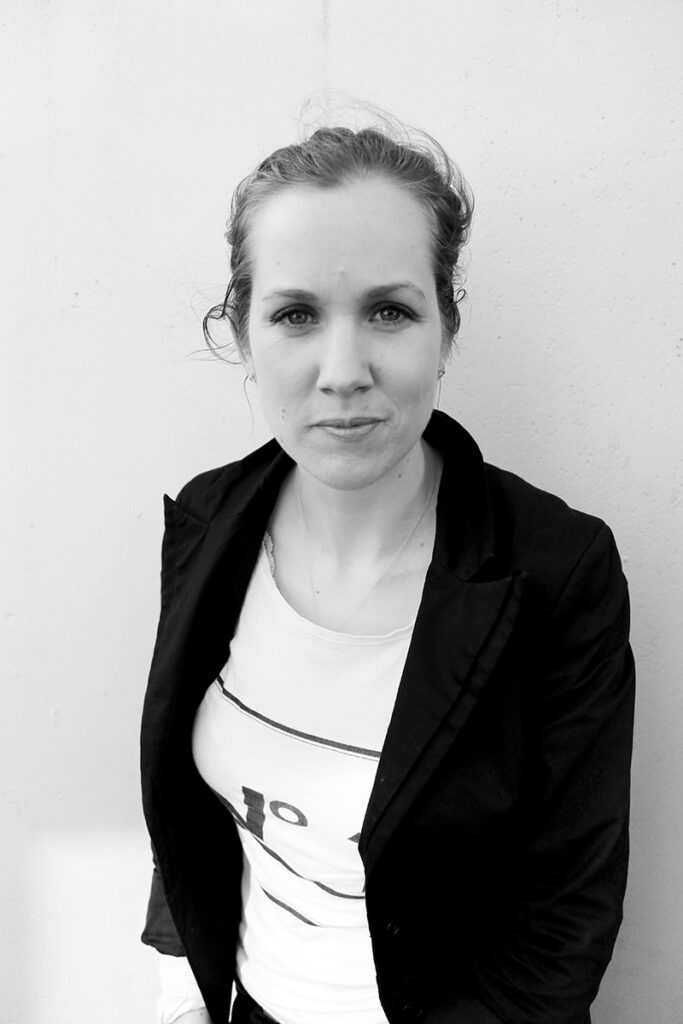
Read last month’s Women in Pro Audio interview here.
Subscribe to Our Newsletter
Get the lastest news and find out about listening events.